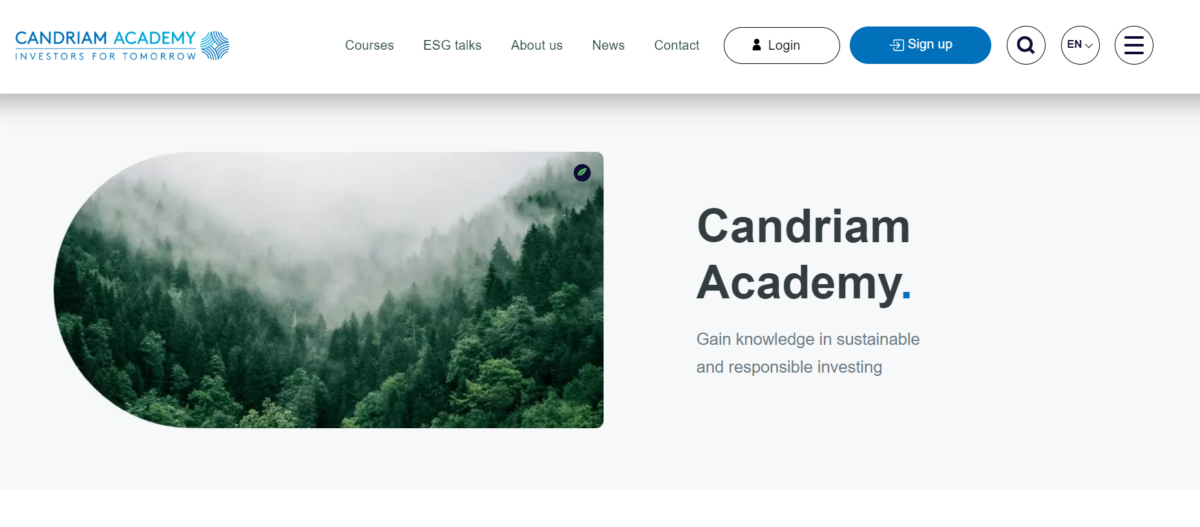Candriam Academy was launched in 2017 as the industry’s first free-to-access accredited training platform for sustainable and responsible investing. Click here to find out more about our Academy’s history.
The Institute’s flagship education project, Candriam Academy, has marked its fifth anniversary this year. During this time, the Academy has grown fast, helping over 12,000 users and adding new topics, languages, training modules and webinars. And now it has moved to a new website, energy efficient and simple to use, which we wanted to build as an example of sustainability in action.
In this interview, Christel Lefevre, Head of Digital & Social Media Communication, talks about the Academy website project, its objectives, and explains why simple is beautiful in the world of sustainable internet.
How different is the new website and what did this project aim to achieve?
It is quite different because Candriam Academy today is very different from what it was when we launched it five years ago. At that time, when there were hardly any courses on sustainable investing, our Academy was a very simple, basic offering. We had just one course made up of four modules. It was available in two languages. Today there are four different courses (and one on the way) in six European languages, and plan to expand into Arabic and Japanese. We also introduced news pages covering topical issues, and ESG Talks, topical webinars. All this had brought a layer upon layer of complexity for which the original website was not built.
So, our first objective was to make our Academy web architecture simpler more user-friendly and to improve the digital experience of Candriam Academy users.
Our second big focus was on the sustainability of our website – we wanted to build an example of energy efficiency.
In other words, we had a twin objective: to ease and simplify digital experience of Academy users, make it more enjoyable, while not overdoing it on features and various “bells and whistles” to keep our portal’s carbon footprint low. In fact, the two are connected because websites with simpler structure require less energy spend on the part of users who have to bowser less to find what they are looking for.
Is sustainability a serious problem for the web?
Internet activity accounts for about 4% of the total greenhouse gas emissions worldwide. But a lot of this energy is wasted on features and bandwidths that people do not actually need. It is paramount that the Internet industry eliminates the waste of energy.
To assess exactly how much energy is consumed by a particular website is no easy task, although approximate estimates can be obtained from www.websitecarbon.com and Safari Web inspector.
One of the best ways of improving energy efficiency of a website is to streamline user journeys. We wanted a website that guides Candriam Academy users quickly and efficiently to what they are interested in.
How did you achieve that efficiency?
Simple web architecture is, by definition, easier to navigate, and typically more effective in achieving its objectives. It is good for the planet too – the more data needs to be downloaded in order to view a website, the more energy is spent, the worse the footprint.
Much of our focus has been on simplifying our website structure and determining its optimal size. Images and videos typically account for the majority of data in the page file so they are the most energy intensive part of websites. We delt with that problem by deciding not to use more than one image per page and to limit the size of each image.
We hope that this has made accessing information easier, and not only in terms of in how many clicks it can be found. Simplicity does not demand the use of the latest expensive technology, a G5 mobile network or the most up-to-date web browser. That said, neither does it mean sacrificing different formats of presenting information, for example in animated form.
New interactive elements will be gradually introduced across our content, and we hope that it will make learning about what is already a fascinating topic of sustainability, even more enjoyable.

